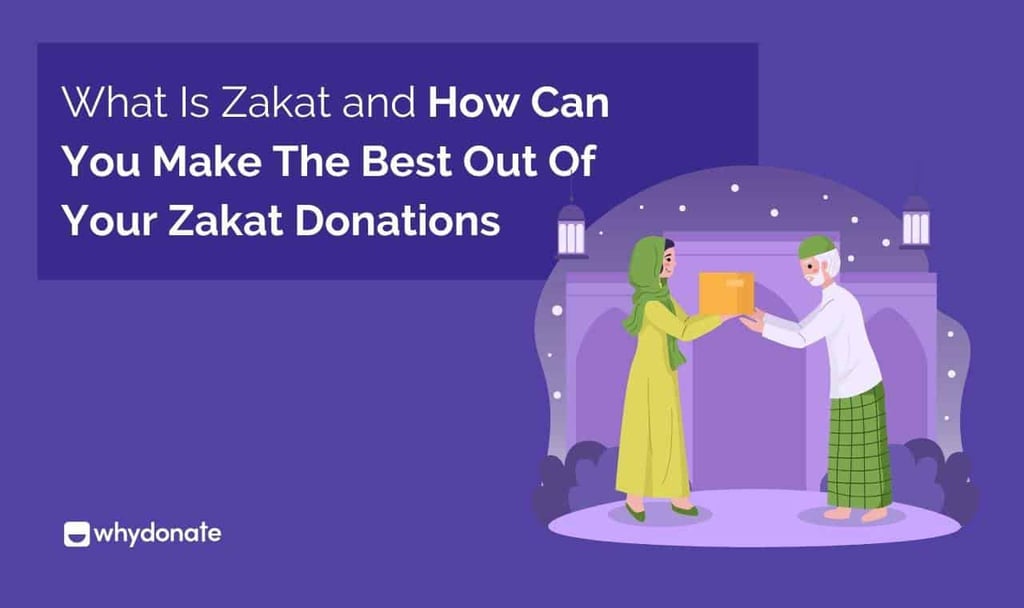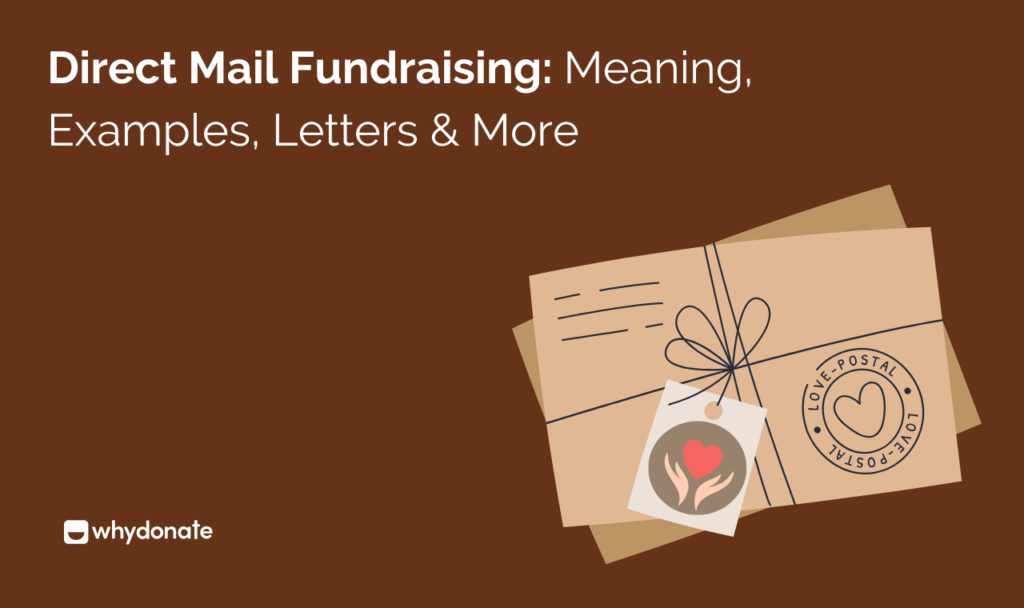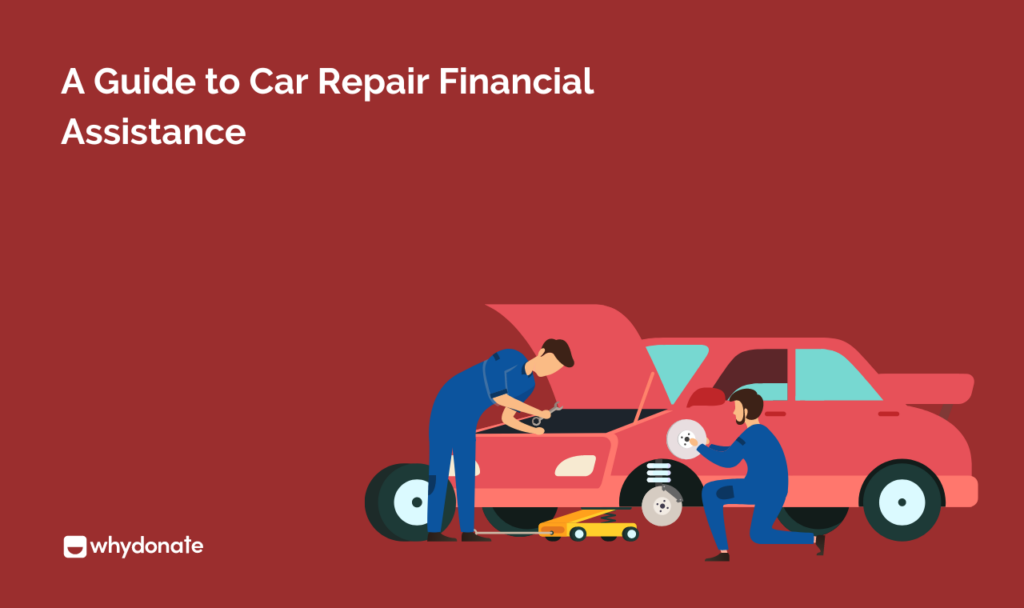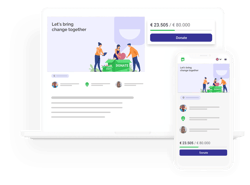It is well said that “no one is useless in this world who lightens the burden of others.” It is an integral part of the Islamic faith that if a Muslim has good wealth, they must donate some of it towards a good cause and help the less fortunate. Zakat Charity can allow people to collect enough funds to invest in their financial obligations. In this blog, let us find out more about what Zakat is, who is eligible for it, fundraising ideas, and more.
Table of Contents
What Is Zakat?
The annual payment known as Zakat is made to qualified adult Muslims who have assets that exceed the value of the Nisab (The threshold at which a Muslim’s personal wealth must be above to be eligible to receive Zakat charity donation is known as the Nisab). It is a fundamental part of the Islamic faith and is a religious duty. If a person has enough wealth, they should use some of it to help the less fortunate. This is done through the concept of giving a portion of it to the needy and poor.
By giving to the less fortunate, Muslims can maintain their humility and strengthen their connection with the Islamic faith. Although it is obligatory for Muslims to pay it, it is not required for everyone. For instance, if a person has enough money but doesn’t possess the required amount, then they can skip the Zakat donation.
Getting to know the various pillars of Islam, Zakat in Ramadan can be a bit challenging for some people. Even if fundraising can help various organizations secure additional funds, there are certain norms one should adhere to.
Start Your Zakat Fundraiser with WhyDonate Now!
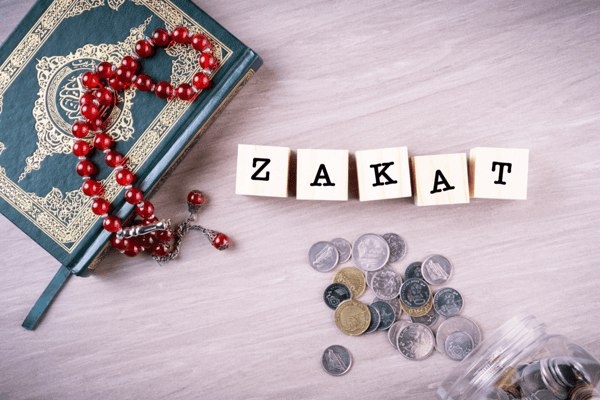
Who Is Eligible For Zakat?
As noble as it sounds, not everyone is eligible to receive a Zakat charity donation. There are eight written eligibility criteria listed in the Qur’an who can proceed with Zakat donations –
- Those living in poverty and without any income are referred to as Fakir
- Those who do not have access to basic needs and amenities, known as Al-Masakin
- Those who are new to Islam and are friends of the community are referred to as Amil
- Those who are victims of slavery and are in debt are referred to as Riqab
- Those who work for Allah are referred to as Gharmin
- Those who fight for Allah’s cause are known as Fisabillillah
- Those who are new to Islam and friends of the Islamic community are referred to as Muallaf
- Those who are struggling and traveling are known as Ibnus Sabil

Best Zakat Fundraising Ideas
Now that you all are clear about what is Zakat, and who you can donate, let’s move on to the area where we discuss how crowdfunding can play a bigger role in Zakat donations as well as online fundraising campaigns. Most Muslims prefer to give this Islamic charity to charitable organizations that provide funds to the needy and poor instead of directly to the beneficiaries. Mosques are among the most common recipients of this type of charitable giving. It’s also helpful to know which areas of the world are likely to appeal to donors.
1. Crowdfunding At WhyDonate
You can donate Zakat online through WhyDonate at any given moment without going through any complicated process at all. WhyDonate welcomes all kinds of fundraisers with open arms by providing a free and reliable platform. Make sure you find suitable fundraisers if you want to donate to any fundraising campaign, or you can also initiate a fundraiser where people can donate to help you with your cause. You can create a donation page that has pre-set amounts for all of your donors. Doing so will help you see which donation Zakat tier is most effective.
Organize a Zakat Fundraising Event and Inspire Others to Give!
2. Make Sure To Be Present On Social Media
It is needless to say, what impact social media has on society nowadays. Every single day, countless people swarm into their social media platforms, such as Instagram, YouTube, etc. So make sure you spread the word about your fundraiser all over the internet and be active on your social media to answer questions about your campaign or send thank-you letters to the donors.
3. Be Transparent
Zakat charity donation is a sacred way of helping people who are in need. This is why it is very important to be absolutely truthful about your cause and adhere to all the Zakat requirements. Being transparent about how you or your organization is using your donations is very important to maintain donor loyalty. They will be more likely to give Zakat charity donations to you if they can see how your organization is using their money. You can also use reports to show how your donation Zakat is being used.
4. Peer-To-Peer Fundraising
A peer-to-peer fundraising campaign is a powerful tool that enables individuals to raise funds for a worthy cause. Through their personal donation landing page, fundraisers can connect with their social networks and spread the word about their cause. For this obligatory charity, through peer-to-peer fundraising, donations can be made to people who are in need. Being able to help others is a rewarding act in Islam. Doing so through peer-to-peer fundraising can change someone’s life and give them a new lease of life.
5. Ramadan Charity Event For Zakat
During Ramadan, many people volunteer their time to help others. It’s important to remember that giving of oneself is also beneficial. You can choose to organize a charity event for Zakat in Ramadan, which will bring the community together and strengthen the relationship between people. Make sure that your charity event is relevant to your organization’s mission.
For instance, if you’re in a homeless shelter, you could arrange a soup kitchen or food donation evening. Try to get volunteers for events as it can be very beneficial to the charity. Being a volunteer can help your nonprofit grow and provide better support to its beneficiaries. It can also help you raise money and attract more donors. Having a dedicated group of volunteers can also help boost the organization’s image and attract more employees.

6. Host a Zakat Auction
A Zakat charity auction is an engaging and unique way to raise funds. Donors can offer valuable items, and the highest bidder wins the item, with the proceeds going towards a Zakat donation. This could be in person or online, using platforms that allow you to create charity auctions. You could auction off anything from donated artworks to experiences, with all proceeds benefiting the less fortunate.
7. Zakat-Targeted Merchandise
Selling Zakat-themed merchandise is a wonderful way to raise funds. You can design and sell items such as t-shirts, prayer mats, or books, with a portion of the proceeds going directly to your Zakat campaign. Not only will this provide a practical means of donation, but it also serves as a reminder of the importance of Zakat within the community.
8. Zakat Runs and Walkathons
Organize a Zakat run or walkathon, where participants raise funds by walking or running for a specific cause. They can ask their friends and family to sponsor them per kilometer or as a fixed donation. This event can raise awareness about the importance of Zakat, and its participants will feel motivated to contribute toward a noble cause.
9. Zakat Meal Drives
Another creative idea is organizing a Zakat meal drive where you provide meals to those in need during the month of Ramadan or other special occasions. You can invite the local community to participate by donating meals or funds that will help provide food for the poor. Meals can be distributed in mosques, community centers, or even directly to those in need.
10. Zakat Giving Circle
A Zakat Giving Circle is a group of individuals who pool their resources together and collectively decide on the beneficiaries for their Zakat donations. This approach brings a sense of community and involvement, as everyone has a say in how the funds will be used. This collective effort can be more impactful as it targets multiple areas and groups in need.
Conclusion
During the month of Ramadan, Muslims around the world are required to fast and perform various religious duties. However, it is also important to remember to do good in their communities. This is an opportunity for individuals and organizations to raise funds and increase their positive impact. It is also important to ensure that the donations are being used for the needy and poor.
Let’s all be grateful for what we have this Ramadan and spread a little bit of kindness to those who need it. Start a fundraiser or donate to any Zakat charity through WhyDonate.
FAQ (Frequently Asked Questions)
Q1. Why do Muslims need zakat?
This obligatory charity serves to cleanse belongings, helps alleviate disparities among individuals, and promotes kindness. It is a religious obligation enabling the interaction of individuals by facilitating economic resources to people in desperate need, thus enhancing social and economic justice.
Q2. Who cannot take Zakat?
It cannot be given to immediate family members such as parents, children,n or even spouses as they are the giver’s responsibility. Moreover, it cannot be given to non-Muslims, the rich, or anyone who misappropriates funds for purposes that are not following Islam.
Q3. Can non-Muslims accept Zakat?
In principle, it is only for Muslims, for it is an obligation of faith that aims at aiding Muslim society. Nonetheless, other forms of charity (sadaqah) which are less constrained may be given to non-Muslims.
Q4. What is the best way to donate zakat and charity?
The best way to donate Zakat and charity is through trusted platforms like WhyDonate, where your contributions go directly to those in need and help you track your donations. You can also consider peer-to-peer fundraising, hosting events, or contributing to a collective charity effort.
Q5. How can I make the best out of my zakat donations?
To make the best out of your Zakat donations, ensure transparency in where the funds go, support diverse causes, and engage with your community through fundraising campaigns. Online platforms, such as WhyDonate, make it easier to donate and track your contributions.
Transform Lives with Your Zakat – Start Fundraising with WhyDonate!
